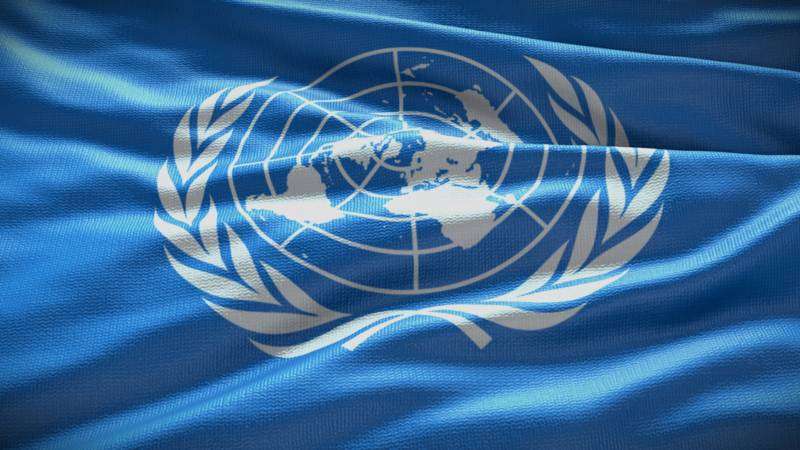Harnessing Biotechnological Innovations for a Sustainable Future – The Plastics Treaty
In recent years, the escalating concern for our environment has led many to focus on one of the most pressing issues of our times: plastic pollution. In this regard, the international community, under the auspices of the United Nations, has initiated an ambitious effort to tackle this challenge at its root through a global Plastic Treaty. This historical initiative encompasses the entire value chain of plastics, from production to disposal, aiming to reduce plastic pollution effectively.
The Plastic Treaty, officially known as the Plastics Treaty Mandate, is an initiative backed by 175 nations. It aims to develop a globally binding agreement by 2024 that covers the entire lifecycle of plastics, from production and product design to waste management. This holistic approach allows for avoiding waste from the design phase, addressing the symptoms and the root causes of plastic pollution. At the heart of the Plastic Treaty is the aspiration to transform our relationship with plastics. At the heart of the UN Plastic Treaty is the desire to change our relationship with plastics, a timely endeavor as global plastic production surpasses 400 million tons annually, a figure set to rise without intervention. This treaty holds the potential to shape a global strategy that reverses this trend, steering the world towards sustainability to reduce plastic pollution, including ocean pollution, significantly.
The Intergovernmental Negotiating Committee (INC), led by the United Nations Environment Programme (UNEP), is tasked with drafting this agreement. The INC's role is to coordinate discussions and gather contributions from member states, with an ambitious target to conclude negotiations by the end of 2024. This requires a high level of international cooperation and commitment.
At its core, the treaty aims to reduce plastic pollution, including ocean pollution significantly, the issue of microplastics, and the broader problem of environmental contamination by plastics. The resolution adopted at the UN Environment Assembly in Nairobi is a significant step towards achieving these goals and creating international accountability.
MIX-UP, aligning with the goals of the Plastics Treaty, champions innovative solutions to tackling the complex issue of plastic pollution. Recognizing the limitations of traditional recycling methods, especially for mixed plastics, MIX-UP focuses on microbial communities and enzymes capable of biodegrading and upcycling mixed plastic waste. This approach supports the circular economy principles and showcases a sustainable pathway for managing plastic waste.
The circular economy is central to the MIX-UP project and the broader discussion at the INC meetings. By creating a closed-loop system where plastic waste is efficiently recycled and reused, we can significantly reduce the need for new plastic production. MIX-UP's efforts in promoting biotechnological innovations for plastic treatment are vital in achieving these circular economy goals.
Witnessing the INC-3 negotiations in November 2023, the importance of innovative approaches like those developed in MIX-UP cannot be overstated. These negotiations will further delve into how biotechnological advancements can play a crucial role in transforming plastic waste into valuable resources, thus reducing the environmental impact of plastics.
The forthcoming INC negotiations are about setting guidelines and making them actionable. Key topics will include designing efficient recycling processes, promoting sustainable product designs, and enhancing international cooperation to combat plastic pollution. The Plastic Treaty and projects like MIX-UP represent a significant shift in how the world approaches plastic pollution, emphasizing prevention, innovation, and collaboration.
By showcasing the potential of biotechnological solutions in plastic waste management, MIX-UP offers a glimpse into a future where plastics do not end up as pollutants but as resources in a sustainable, circular economy. Our work on enzymes and microbes that can break down and repurpose mixed plastics is groundbreaking, offering a solution to one of the biggest challenges in recycling.
Furthermore, the Plastic Treaty, guided by the principles and goals outlined in the INC negotiations, can create a unified global strategy. This would address the immediate issue of plastic pollution and work towards a more sustainable and responsible approach to plastic production and consumption.
In conclusion, as we move towards the INC-3 negotiations, the world is at a pivotal point in addressing the plastic pollution crisis. Through the concerted efforts of the international community, exemplified by the Plastic Treaty and innovative projects like MIX-UP, we have the opportunity to create a sustainable future where plastic pollution is a challenge of the past. It's an opportunity to clean up our oceans and lands and reinvent our relationship with one of the most ubiquitous materials of our time. The journey ahead is challenging, but a cleaner, greener future is within reach with collaboration, innovation, and determination.


